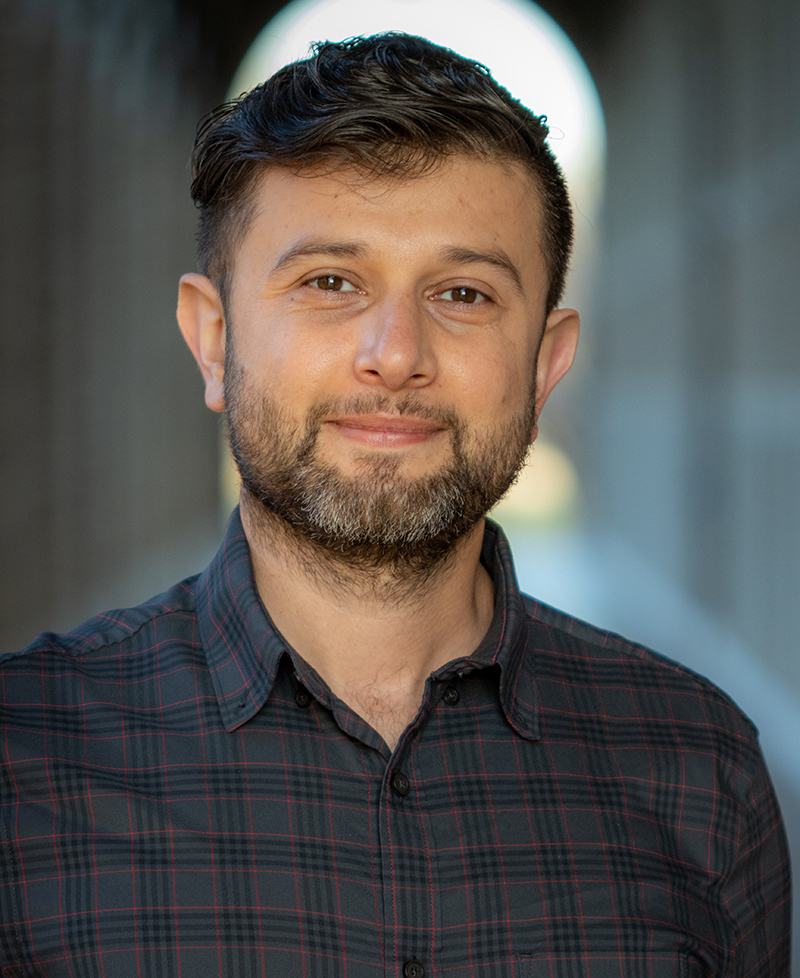Esteban Montenegro says he didn’t earn a Ph.D. to sit behind a computer. He believes universities should serve communities, and in Stockton, he’s turning that belief into action.
An assistant professor of psychology at Stanislaus State, Montenegro is leading the University’s role in the City of Stockton’s $8 million Proposition 47 REDIRECT initiative. The partnership between Stockton, Friends Outside — a nonprofit that supports individuals and families impacted by incarceration — and Stan State aims to reduce recidivism by connecting people to mental health care, substance use treatment, housing support and workforce pathways instead of cycling people back into the criminal justice system.
Supported by $400,000 in grant funding, Stan State will build the digital infrastructure that will allow partners to measure whether REDIRECT is working, and whether lives are improving. Montenegro is developing the system that will connect data from all three partners so outcomes can be tracked, services strengthened and future funding justified.
“This shows that Stan State is not just educating students — we’re part of the solution to real problems in the region.”
- Esteban Montenegro
“This is going to be huge for the community,” Montenegro said. “We’re working with young adults, people reentering society, people dealing with addiction, and, in Stockton, there is a real need.”
People leaving incarceration often face trauma, unstable housing and limited support.
“If we can help someone avoid going back to jail because they finally got housing, or treatment, or someone who believes in them, that is real change,” he said.

Montenegro’s work centers on evaluation as a backbone of accountability. His job is to help answer critical questions: Are services reaching the people who need them most? Is support leading to stability, housing or employment? Are fewer people ending up back in jail?
“We’re focusing on how to measure impact in a way that is real and useful,” he said. “If we do this right, this system will help decide what works, where resources should go and how we can sustain this long after the grant ends.”
Rather than just collecting numbers, he is designing tools that will allow city officials, nonprofit leaders and campus partners to understand in real time how the program is functioning. The goal is to build a shared digital infrastructure that shows what’s working and makes it easier for partners to expand and strengthen support.
Montenegro plans to involve students — two graduate students and one undergraduate student to start — in every step of the evaluation process.
“They’re going to learn things you don’t get from a textbook,” he said. “How to collect data, build dashboards in R or Python, choose the right instruments and understand how interventions affect real people.”
More students will be involved through his Interdisciplinary Statistical Outcomes (ISO) Lab, which welcomes participants from psychology, sociology, social work, nursing and other disciplines.
“They’ll see what case management looks like and what information is needed to support someone who was incarcerated,” he said. “And they’ll start asking, ‘How can I use my privilege to help somebody else?’”
“This work creates opportunities for students to get hands-on, real-world work experience and shows that Stan State can help lead meaningful solutions in this region.”
- Stockton Campus Dean Sarah Sweitzer
